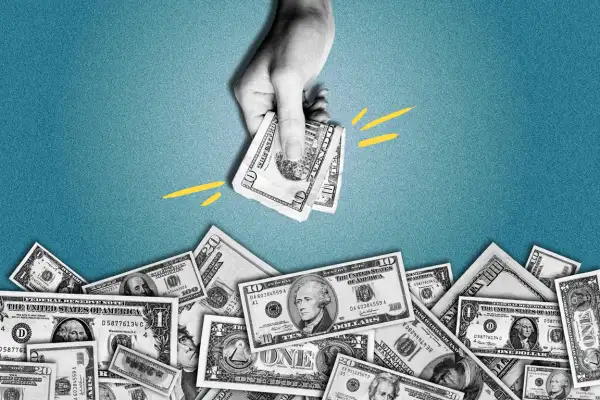Are You Putting Too Much Money in Your High-Yield Savings Account?
Money is not a client of any investment adviser featured on this page. The information provided on this page is for educational purposes only and is not intended as investment advice. Money does not offer advisory services.

When you’re making money without having to do anything, it’s easy to throw the blinders on instead of stepping back and scrutinizing: Yes, I’m earning a return, but is this the best way to do it?
High-yield savings accounts are a prime example. Ally, one of the best-known online banks, is offering up to 4.25% interest on savings account deposits. Other online banks like Varo and Bask Bank are offering APYs as high as 5% for their high-yield savings accounts.
When you compare these rates to the current national average — 0.43% as of this writing — throwing a bunch of cash into a high-yield account may seem like a no-brainer. But depending on your financial goals, there might be more potent ways to grow your wealth.
High-yield savings accounts are having a moment right now.
With interest rates as high as they are, it's expensive to borrow money — and not just for consumers looking to buy a house or open a new line of credit; it's also expensive for banks to borrow from other banks.
By offering savings accounts with higher-than-usual APYs, banks like Ally can lure in a higher number of clients and a larger pool of cash deposits.
Many experts expect the Fed to pause and maybe even begin lowering interest rates in early 2024. As this happens, banks will adjust their own rates accordingly; meaning the APYs on high-yield savings are probably going to drop.
The current rates on these accounts offer a legitimate way to build passive income, similar to bonds and money market accounts. But since those APYs aren't locked in — they can change at any time — they're not workable replacements for other growth investments, especially in the long term.
“Although the yields look really attractive on high-yield savings accounts right now, I wouldn't necessarily want to have money there, instead of in equities or other types of investments, if you have a long time horizon,” Amy Arnott, analyst at Morningstar, says.
Mutual funds, ETFs and stocks are more volatile than savings accounts, but they yield far better long-term returns.
Take the S&P 500; the index has seen an average annual return of over 12% in the last decade — far better than even the highest high-yield savings APYs in a year full of inordinate savings rates.
Tim Steffen, director of advanced planning at Baird, says young people especially should embrace equities as the best long-term growth strategy, since "you have plenty of time to overcome whatever kind of market volatility you might experience over the next 30 or 40 years.”
But even if you're more risk-averse, he adds, it's usually a better idea to look to investments like certificates of deposit (CD) or money market funds, which DO let you lock in an interest rate, and carry similarly high or even higher rates than high-yield savings accounts.
For most investors, the best way to leverage a high-yield savings account is to use it as an emergency fund.
“The standard guidance is, you should have an emergency fund that would cover three to six months,” Steffen says.
The real benefit of savings accounts, high-yielding or not, is they keep your money accessible.
Adam Stockton, head of retail deposits at Curinos, sums it up with an anecdote. Stockton’s water heater sprung a leak one weekend, flooding his basement. Between the damage to his home and the off-hours plumber he called to handle it, the incident cost him thousands. His saving grace was an accessible emergency fund.
“It’s easy to get caught up on earning high interest on everything," he says. "For an emergency fund that I need access to today, [a lower yield] is probably fine. And then, a different part of my money is someplace that's really earning a return.”
More from Money:
These Are the 3 Best Money Moves for September 2023
You Can Put a Lot More Money Into Your HSA Next Year
The Student Loan Pause Is Officially Ending — Here's What to Expect
